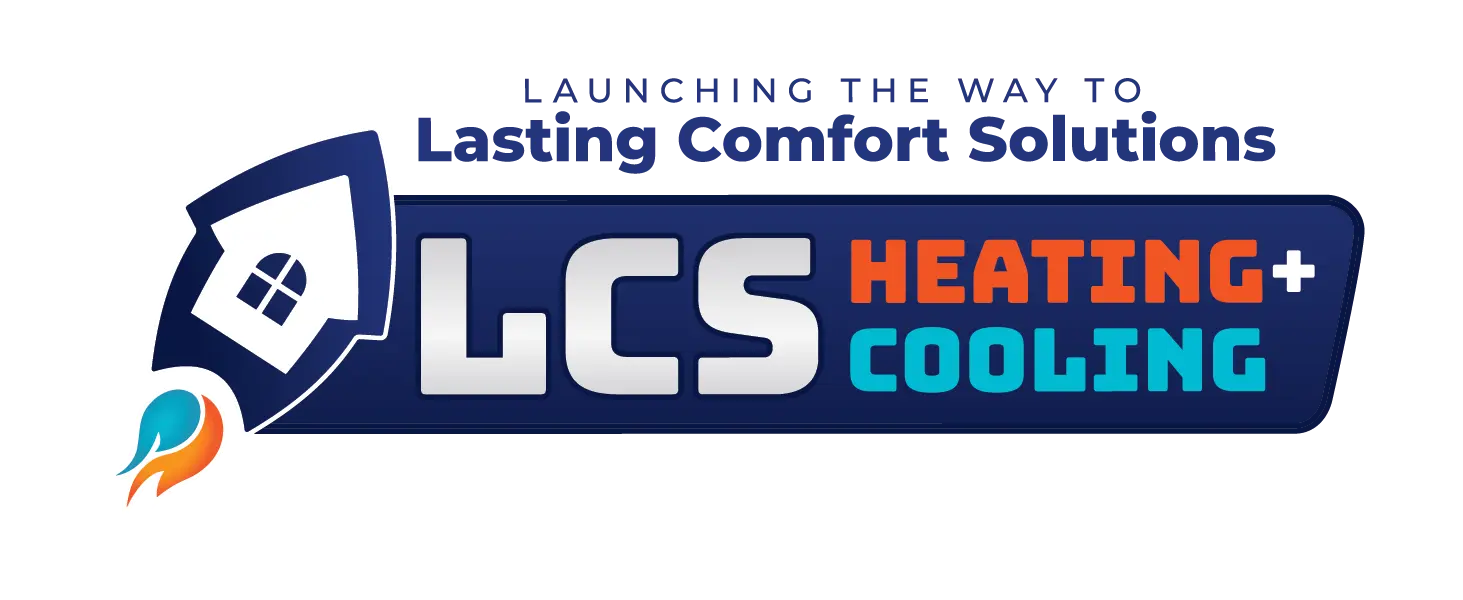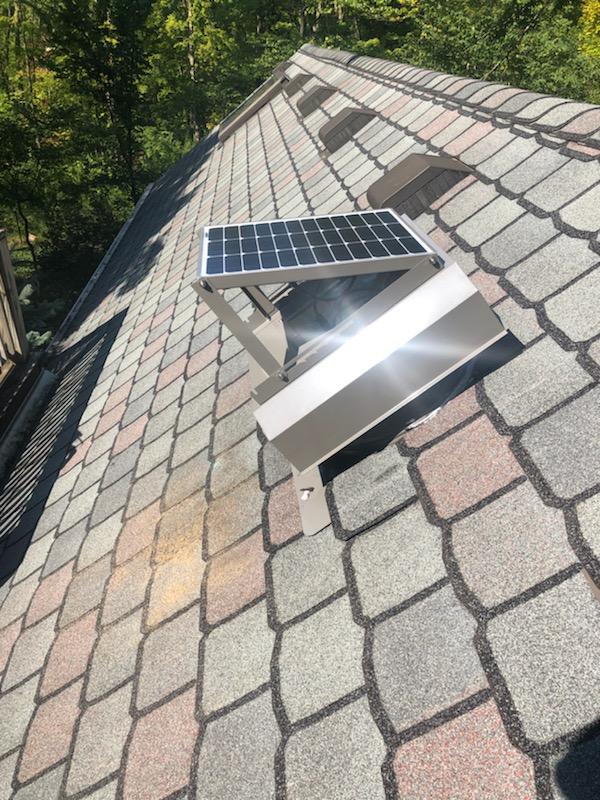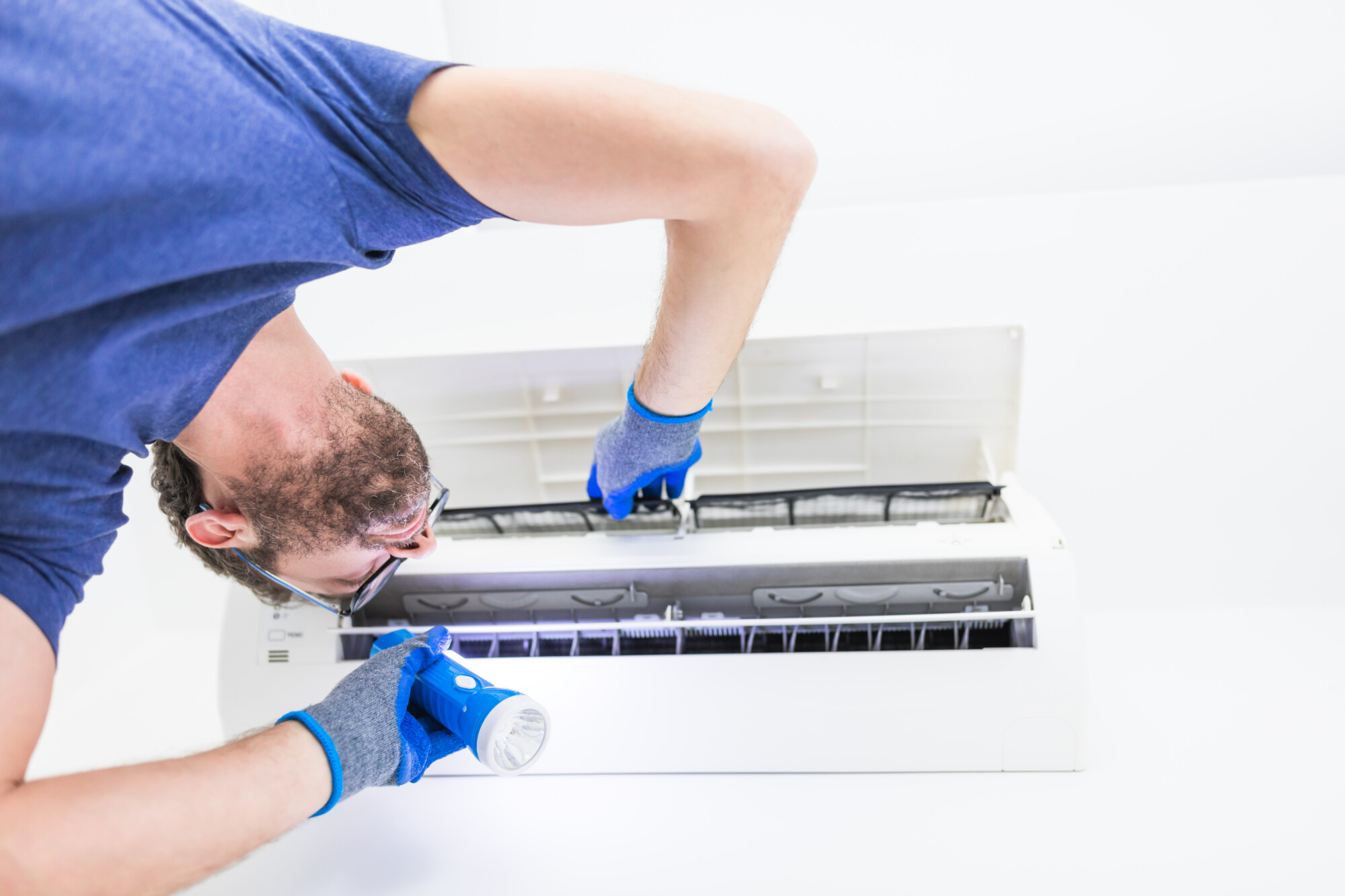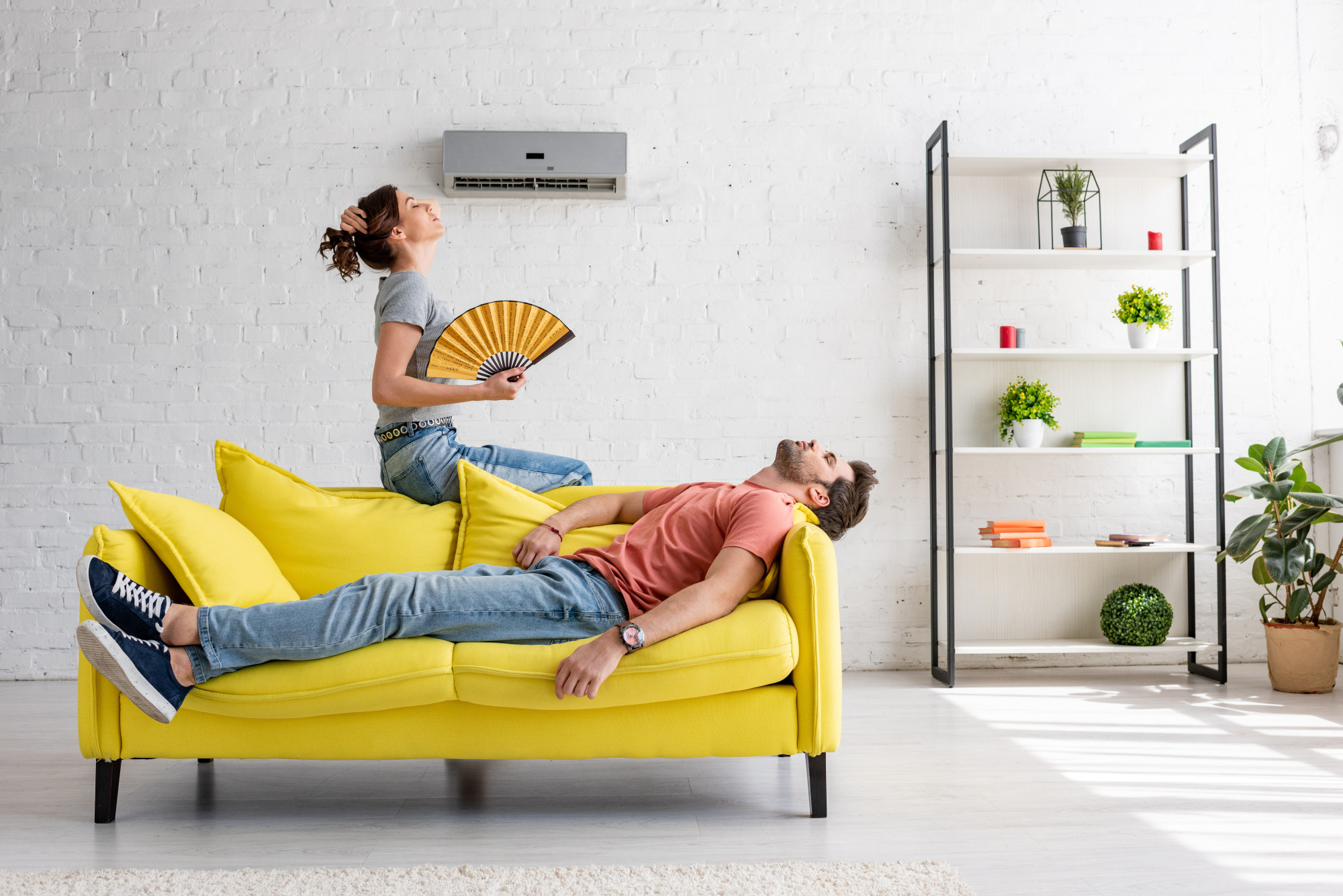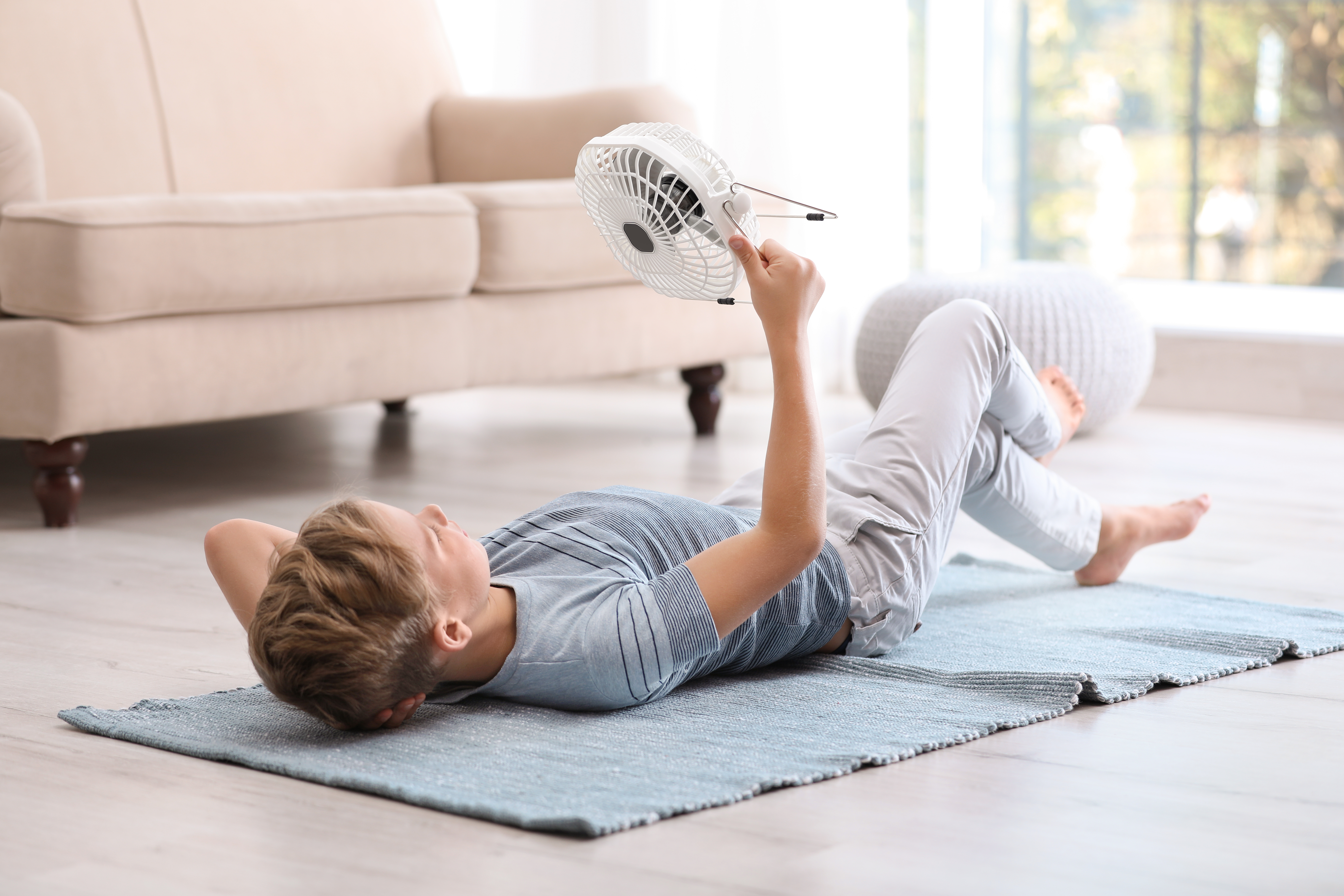How to Address Hot and Cold Spots in Your Home
Your upstairs is hot. Your downstairs is freezing. You can’t find a single spot in your home where you feel comfortable. If this sounds familiar, you may have a problem with hot and cold spots.
 Why do I have hot and cold spots in my home?
Why do I have hot and cold spots in my home?
There are several factors that cause hot and cold spots in a house. One of the most common causes is improper ductwork design. Other possible causes include poor insulation and air leaks, which can allow hot or cold air to enter or escape through cracks and gaps in the walls, windows, or doors. Other factors that can contribute to hot and cold spots include problems with the HVAC system and even the position and orientation of your home in relation to the sun.
Do I need to replace my HVAC?
The good news is that you likely don’t have to replace your HVAC system to address hot and cold spots in your home. There are many possible solutions, depending on your home setup, to fix the problem.
What can I do to fix hot and cold spots in my home?
Depending on the specific issue in your home, resolving hot and cold spots can take different forms.
- Zone Your Home: What does this mean? Most of the time your home is on a single thermostat in one zone. When we zone your home, we create multiple zones, each with its own thermostat. This allows you to control the temperature independently in each zone or area of your home. Some homes can be zoned, but some cannot. If you’re not sure if zoning would be an option for your home, contact us!
- Ductless Mini-Split: A mini-split can be a great solution if you can’t zone your home, or if a smaller area of your house is impacted. This option involves installing a system that’s separate from your traditional furnace and air conditioner. A mini-split has an outdoor unit, along with one or multiple indoor heads. This unit is controlled by its own thermostat, giving you complete control over the temperature in that space. Mini-splits are especially great for large bedrooms, bonus rooms, and sunrooms.
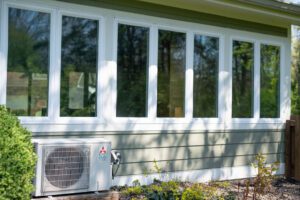
Outside of these solutions, there are some additional steps you can take that may not be true fixes but can alleviate the problem a bit by closing the gap from one end of your home to the other or between your upstairs and downstairs temperatures.
- Solar-Powered Attic Fan: While it can’t completely resolve hot and cold spot issues, a solar-powered attic fan can help keep your attic cooler, which in turn can keep the floor directly below the attic cooler. There are no long-term costs associated with a solar-powered attic fan since it runs on solar. As an added bonus, removing some of the heat from the attic will extend the life of your roof decking and shingles! Learn more about this solution in our blog post: Are Solar-Powered Attic Fans Worth the Expense?
- Thermostat with Sensors: Thermostat sensors can be placed around your house to determine an average home temperature to maintain a more comfortable temperature throughout.
HVAC Solutions in the Indianapolis Area
If you’re not sure what solution will work best for your home, contact us. Our expert technicians can come out, diagnose your issue, and recommend the best possible solution for your home and for your comfort!
Are Solar-Powered Attic Fans Worth the Expense?
If you’ve ever been in your attic during warmer months, you know it can be HOT up there. With all the heat rising from your home pushing up into the attic, and the sun warming the roof and pushing down into the attic, you’ve got the makings for a sauna. But, unlike an intentional sauna, you can’t control the temperatures in your attic… or can you? That’s where solar-powered attic fans can come to the rescue!
How do solar-powered attic fans work?
Solar-powered attic fans use energy from the sun to power a motor, which rotates a fan blade to circulate air in the attic. The fan helps to remove hot air from the attic, which can reduce the temperature in your attic and the workload on your home's air conditioning system. Ultimately, not only will you lower the temperature in your home, but your energy bills too!
Are solar-powered attic fans worth the investment?
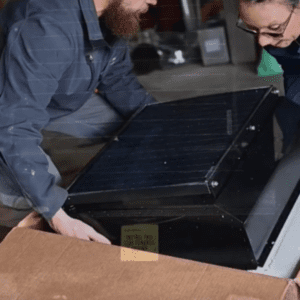 Yes! After your initial installation cost, it’s only savings and benefits from there on out!
Yes! After your initial installation cost, it’s only savings and benefits from there on out!
• Energy savings: Solar attic fans are powered by the sun, which means they don't rely on electricity from the grid. This can result in significant energy savings over time, especially during the summer months when attics can become hot and stuffy.
• Improved air circulation: Attic ventilation is important for maintaining the health and longevity of your home's roof, as well as preventing moisture buildup and mold growth. A solar attic fan can help improve air circulation by drawing fresh air into the attic and pushing hot, stale air out.
• Increased comfort: By reducing the temperature in your attic, a solar attic fan can also help make your home more comfortable during hot weather. One of the biggest complaints we hear is that it’s hot on a home’s second floor; a solar powered attic fan can significantly reduce the temperature swing between floors by taking the heat load off the upstairs!
How are they installed?
Solar-powered attic fans are typically installed by cutting a hole in the roof and securing the fan to the underside of the roof using brackets or screws. (This isn’t a job for a casual DIYer… you want a professional for this to ensure proper installation and prevent damage to your roof!) The fan is then connected to a solar panel which is mounted on the roof.
How much do attic fans cost to operate?
Not a dime! Once installed, the solar panel does all the work to power the fan and keep your attic cool!
Attic Fans in the Indianapolis Area
If you’re ready for an earth-friendly way to reduce cooling costs in your home and increase your comfort, contact us to learn more and to get a quote for installation!
SEER2: What it Means for You
What is SEER2?
First, we’ll start with SEER: SEER stands for Seasonal Energy Efficiency Ratio. This ratio, or rating, is set by the US Department of Energy (DOE) on equipment efficiency for air conditioners and heat pumps. Basically, the higher the SEER rating, the less electricity is required for the equipment to do its job. Something related to SEER that you may be more familiar with is Energy Star certification: for example, air conditioning units that receive SEER ratings of 14 or more may qualify for Energy Star certification. “SEER2” is the newest iteration of this ratio, and with this new iteration comes new requirements.
What are the new SEER requirements?
As of January 1, 2023, the new minimum SEER requirements on air conditioners is 13.4 and 14.3 on heat pumps.
Why are there new SEER requirements?
The DOE periodically evaluates current technology, efficiency, and the cost of that technology to determine the right balance in ratings. As these things change, the measures used to determine the ratings must be adjusted as well.
With the new testing requirements, equipment measured with these updated standards (SEER2) is significantly more efficient than those with a similar rating measured by the old (SEER) standards.
How will SEER2 affect me?
Existing systems installed prior to January 2023 are not affected, so no worries if you’ve recently had a new system and aren’t looking to have one installed. Only systems installed after January 2023 will be subject to the new SEER2 standards.
If you fall into the category of looking to replace your system now, and you were already interested in a higher efficiency system, you really won’t notice any kind of impact. However, if you are looking to replace a system with more of a base model, you may have to upgrade the system you install compared to what you may have installed in previous years.
Select the image above for Renee's explanation of SEER2!
SEER2 in the Indianapolis Area
If it’s time for you to install a new system, contact us today. LCS Heating and Cooling can help you navigate any questions you have related to SEER2 and help you determine an affordable lasting comfort solution for your home!
4 Reasons AC Maintenance Will Save Homeowners in Indianapolis, IN Money in the Long Run
Keeping your air conditioner in good shape is the key to a comfortable home with good airflow. Three-quarters of Americans have air conditioning in their homes. With average highs in the 80s, Indiana residents know that on those hot summer days, having an AC unit that works is 100% necessary. What you might not realize, however, is that proper AC maintenance can save you a lot of money.
In this post, we're going to tell you 4 reasons why this is true and give you a few cooling maintenance tips along the way. If you've just left your AC unit alone, keep reading and see why you should be taking better care of it.
1. More Energy Savings
When you have an AC unit that isn't working optimally, you're going to end up spending more on your monthly bills. Things like dirty air filters, frozen condenser, evaporator coils, and air conditioner leaking cause the unit to have to work harder to match the temperature on your thermostat.
You can check some of these things on your own. Air filters, for instance, should be changed every 90 days or so, while coils should be regularly inspected. If you can't figure out why your bills are so high, contact a local HVAC company to have your AC unit looked at.
2. Less Spent On Repair
The better maintained your AC unit is, the less you'll actually spend on repairs and replacement in the long run. When particular problems are allowed to build up over long periods of time, you really do run the risk of having an emergency where you have to find AC companies that can fix your unit last minute.
Even an annual inspection will do wonders for your AC unit. Your HVAC technician will come in and inspect everything we discussed above and replace the smaller cogs in the machine that will help it run better for longer. You'll have a comfortable home and avoid spending on AC repair.
3. Better Longevity
An average lifespan for a central air conditioning unit is between 10-15 years, but with proper maintenance, it can go longer. That said, a unit that hasn't undergone regular maintenance and has needed numerous repairs isn't likely to make it to 10 years.
A full AC replacement is so much more expensive than a few AC repairs and certainly more than annual maintenance. If you want to save yourself thousands on a new unit and the cost to install it, then make sure you're giving it the proper care.
4. The Best Technicians
When you build a working relationship with your HVAC technician, you'll see a lot of perks. At LCS Heating and Cooling, for instance, we offer our new customers an AC repair free estimate and lots of financing options.
If you call us, we won't just come and perform basic upkeep. We want to make sure your home's air quality and HVAC equipment are going to stand the test of time. We've got years of experience helping the residents of Indianapolis with their HVAC needs.
Don't Sleep on AC Maintenance
Now that you know why you need AC maintenance in the Indianapolis area, it's time to call the best company for the job. Contact us at LCS Heating and Cooling to schedule your maintenance work today. With our help, you can save money on bills and costly repairs for years to come.
Home Air Conditioner Maintenance to Prepare for the Summer
Summer is quickly approaching, and you know what that means. You need to prepare yourself (and your Indianapolis home) for the sweltering heat.
If you haven't already, that means that you need to complete some home air conditioner maintenance if you want your home to stay cool and comfortable.
Your annual air conditioner maintenance doesn't have to be extensive. With the right technician, it will be done in a flash. Keep reading to learn all about how you or your maintenance technician should prepare your air conditioner for the hot summer ahead.
Checking the Wiring
If you haven't been using your air conditioner for a while, you may be in for a disappointing surprise when it's time to get it up and running. Even an air conditioner that was in good condition before you stopped using it could have faulty or damaged wiring.
This is one area in which a hiring professional is important. They can shut off the power supply to the AC unit and open everything up to look for problems. Doing it yourself is tricky and could result in injury or further damage to the unit.
Filter Cleaning
Everyone knows that filters need to be cleaned every so often. It's best to change or clean your filters at least once per month during the summer.
Filters are there to prevent pollutants from getting into your home. When those pollutants pile onto the filter, it's no longer able to do its job. Clean it out so you can have fresh air.
Checking for Leaks
There are plenty of things that could make your unit less efficient.
There could be leaks (or obstructions) in your ducts. They make it harder for air to flow, meaning that your air conditioner won't be as effective.
There can also be leaks in your walls and windows, so check there if you still notice that your air conditioner isn't working as well as it should.
Thermostat Preparation
Your thermostat is a key part of maintaining the temperature of your home. Even the best air conditioning unit isn't effective if your thermostat isn't in working order.
After you're finished prepping your air conditioner for the summer, check your thermostat to see if everything is working. Checking the air conditioner first lets you rule out the unit as the problem.
Hiring a Professional
If you haven't hired a professional to look over your air conditioner repair and maintenance at this point, it's a good idea to do it after you've done all that you can to get your unit ready for summer.
You might do a great job at maintaining your air conditioner, but the last thing that you want on a hot summer day is to fight with an air conditioner that isn't working.
Preventative maintenance helps you avoid this problem.
Do You Need Professional Home Air Conditioner Maintenance?
Your air conditioner keeps your house cool and comfortable. If you want it to work as well as possible, doing regular home air conditioner maintenance is key.
When you're in need of a professional to take care of your home air conditioner unit in Indianapolis, Indiana, we want to help. At LCS Heating and Cooling, our team of professionals is ready to help you with all of your HVAC needs. Whether you need routine maintenance or repair, we have you covered.
Contact us or schedule your maintenance today.
It might still feel like spring now, but the hot summer days are fast approaching! And while it’s always nice to soak up the sun outside, we definitely want to keep cool indoors. For that, an efficient AC unit is key. Your annual maintenance plan appointment can help make sure everything is running smoothly. But what about those older air conditioning units?
By now, you may have heard about the refrigerant phaseout for certain HVAC systems. If you’re worried about what that means for you and your home, we’ve got the answers.
About the R-22 Refrigerant Phaseout
Regulations set by the Environmental Protection Agency (EPA) are now in effect for one of the most common ozone-depleting substances: HCFC-22, otherwise known as R-22 refrigerant. This phaseout means that no one in the country can manufacture R-22. It also means that this type of refrigerant is going to be harder and harder to find. And as the supply continues to dwindle, the product is only expected to get more and more expensive. An honest assessment of your current HVAC setup can help ensure you don’t end up wasting money.
How Will Homeowners Be Affected?
If you have a newer AC unit installed, this phaseout shouldn’t have any impact on your future repair or maintenance needs. But homeowners with older systems should definitely take note. Systems that are over 10 years old are probably still using the R-22 refrigerant. So you’ll want to be aware of the coming changes.
The good news is that you can still run your air conditioner or heat pump like normal if it uses R-22. You can even get regular AC repair services for these older units. Just know that if refrigerant is required, those repairs will likely be quite expensive. This goes back to the supply-demand dilemma. Now that production has stopped with R-22, it may not be the best idea to move forward with every repair. Some homeowners want to keep their system for as long as possible, and that’s okay! But if you have to rely on R-22 for a major repair, it might be time to look into options for a more cost-effective AC unit.
AC Repair vs New Unit Replacement
Although the HVAC industry technology continues to get more efficient year after year, no unit can last forever. Facts are facts. Systems that have been running for more than 10 years have a higher chance of running into problems. Regular maintenance can help extend the timeline for some equipment, but those repair costs can also add up fast. Knowing when to upgrade to a more reliable system can help keep your budget in-check.
Homeowners generally find that it doesn’t make sense to put a bunch of money into an older system that is out of warranty. If your equipment is still using R-22 refrigerant without any problems, then by all means, keep it up! But if you know your system has been struggling, it’s a good idea to start budgeting for a new system sooner rather than later.
There are actually a lot of rebates available right now to help you get a solid deal on your home’s new investment. If you’d like to start running the numbers, we’re here to help. We know that weighing the pros and cons of replacing your air conditioner can be confusing and even overwhelming at times, but the more you know, the better off you’ll be. Whether you’re looking for a second opinion or you just hoping to get through another summer with your existing unit, our team can work with you to get the repairs and professional insights you need.
May 13, 2020
When the heatwaves start heading in, we all want to have a cool place to retreat indoors. Of course, we’d rather not drive up our energy bills to keep things comfortable! A little common sense can help you manage your cooling costs this summer. Use these tricks to get the most out of your AC unit—especially during triple-digit days outside.
1. Adjust your ceiling fans
One way to better regulate your indoor temperature is to change how your ceiling fan blades rotate throughout the year. In the winter, we want warm air to circulate. Adjusting your fan so it pulls air up encourages cooler air to mix with the heat that rises to your ceilings, making your room feel warmer. On most ceiling fan models, this happens when the blades run clockwise.
For the summertime, though, it’s better to have air moving down and away from the fan. The angle of your blades impact which direction they should spin this time of year, but typically it’s counterclockwise. This will add a cool breeze in your room—which is a nice bonus to how your AC is already working.
To test this, all you have to do is stand beneath the ceiling fan. If you feel cool air blowing down on you, then you’ll know you’re set! Otherwise, just flip the little switch on the base of your fan. This will tell the blades to move in the opposite direction. Run your fan on high during hot days, and you’ll really put them to good use!
2. Turn on the exhaust fans
The next thing to watch for in summer is how you manage the hot air in your kitchen and bathroom. Warm showers and hot cooktops add extra heat to your home. Being able to push that air outside can help keep things cooler.
The primary function of your exhaust fan in the bathroom is to reduce your risk of growing mold and mildew in the bathroom. You can turn it on to minimize that muggy, humid feeling. This is important when you’re creating steam in the shower, but it also benefits your home’s AC. You can turn on your exhaust fan whenever the air in the room is feeling thick.
This works for your kitchen too. Use your exhaust fan to pull heat away and out of the room. You don’t have to run these fans for long to make a difference. And when the weather is smoldering outside, every little bit counts.
3. Watch your open doors
Another way to reduce the heat in your home is to keep that cool air in its place—inside! Going in and out of the house for chores in the backyard just gives that cold air more chances to escape. Then your AC has to work harder to make up the difference. The same can be said about your garage door. We see a lot of people leave it up when they’re at home. Again, that just creates opportunities for the hot summer weather to impact your temperature indoors. Keep that garage door down so it becomes another barrier against the heat.
Of course, if you have dramatic temperature swings throughout your home, it might be time to consider other solutions. Looking into zoning for your home can be a great way to direct how your AC and furnace work throughout the year. You divide rooms or levels into distinct zones. This gives each area its own thermostat. Then you can really have control over the temperature in your home.
Hopefully you’ve already gotten your AC unit serviced for the hot weeks ahead, but if not, you can always give our team a call at (317) 238-3961. We’d be happy to come out and get your home (or business!) squared away. After that, just follow these easy tips to keep cool this season. Your air conditioner will thank you!
August 6, 2019
With warmer days ahead, you want to make sure your AC is ready to go. Sometimes the long break during winter will stop your unit from running properly when you need it to start up. A little maintenance can go a long way.
Prepping Your AC Unit After Winter
It’s always a good idea to clear any debris around your AC unit before turning it on. Sticks and leaves from the fall and winter can collect around your system and interfere with its air flow and overall function. After you check that area out, take a peek at your air filter. It might be time to swap your old filter out for a clean, new one. This will make it easier for your AC to run.
You’ll also want to make sure your unit has power. If the unit doesn’t kick in after you’ve adjusted your thermostat, go ahead and take a look at your circuit breaker before calling your HVAC company. The switches should be flipped to “on,” so this could be a simple fix if you’re having trouble with your AC. Otherwise, you might be looking at some different issues.
Common Problems Starting Your AC
Some problems that pop up after winter are relatively easy to fix, but others require professional expertise. These are some of the most common hiccups we see with units starting up in spring.
1. Thermostat Problems
Hearing a loud racket when you turn on your AC unit is usually a sign that something isn’t right with your blower motor or fan motor. Of course, if you aren’t hearing anything at all, then you might be having a problem with your thermostat.
The electrical wiring from your thermostat is connected to your AC. Assuming your thermostat has good batteries, you might be facing an issue with some electrical work. An HVAC professional can take a look and let you know what needs fixing.
2. Low Refrigerant
When your unit doesn’t have enough refrigerant, it won’t be able to cool your home. Your HVAC company will have the equipment needed to measure the levels and see if they’re low. Unfortunately, just topping off the refrigerant might not be enough. Your system could have a leak. If your HVAC technician says low refrigerant is to blame, make sure they’ve also done a leak search. You don’t want the issue to repeat itself!
3. Dirty Units
After the “off” season, you might also have trouble with a dirty system. The AC unit itself, also known as the condenser, may have dust and debris inside it. This can mess with the fans and block airflow, just like a dirty air filter indoors. A good cleaning can help.
In other cases, you could be facing a dirty evaporator coil. Older units and equipment that hasn’t been serviced in a while will sometimes run into this problem. Because the coil needs to be completely removed for cleaning, this isn’t something you can handle on your own. You’ll need an HVAC technician to help you out. Still, it’s a pretty quick process.
Plan Ahead with a Spring AC Tune-Up
Letting your unit run when it isn’t working properly can lead to a series of bigger problems. If your unit isn't working for your home, call on your HVAC company. Units that are dirty or need a leak repaired should be addressed sooner rather than later. Typically, these problems can be fixed during your annual maintenance!
Scheduling regular maintenance can keep your unit working its best. A technician can check all of your connections, clean up your unit, lubricate its moving parts, and more. Our LCS Annual Maintenance Plans are designed to help you out.
Getting routine checks with your unit before it acts up can help extend its life. Plus, it’s more convenient than waiting for service when something goes wrong. The temperatures will only continue to rise, and you don’t want to be caught without cool air. Let us know how we can help. Give our team a call at (317) 238-3961.
May 10, 2019
During the hot summer months, most homeowners don’t expect to find ice on their air conditioning unit. Unfortunately, this issue is more common than you might think, and having ice on your AC is a sure sign that something’s not right. Reviewing the likely causes can help you get your equipment back to its normal working state.
Problems with AC Ice
Once you notice that there’s ice on your unit, you need to turn your AC off. This can help prevent the situation from getting worse. Assuming it’s warm outside, this will help get the ice to melt, too. Let your unit thaw completely, then work through these different scenarios to identify the underlying cause.
1. Poor Airflow
If you’re lucky, the ice on your AC is the result of a more minor issue. After the ice has thawed, the first thing to do is to check is your air filter. Sometimes ice can form on air conditioners when there is poor airflow, so replacing your old air filter with a new one might be all it takes to get your unit running smoothly again.
One of the problems with dirty filters is that they put more stress on your evaporator coil. Reducing airflow over your evaporator coil can then cause your equipment’s temperature to drop below freezing. Consequently, humidity will start to collect around your AC and turn into ice.
Hopefully a new air filter will be enough to remedy the situation. To test this, wait for the ice to melt and then turn your air conditioner on again to see if the ice returns. If it doesn’t—then you’re all set. But if the ice comes back, there might be another problem.
2. Dirty Evaporator Coil
When ice forms even with a new air filter, you might be dealing with a dirty evaporator coil. This can happen with older units or AC equipment that hasn’t had regular maintenance.
In this case, you’ll want to turn the equipment off again and call on an expert to come clean the evaporator coil. Unfortunately, this isn’t something that homeowners can do on their own. The process requires a tech to fully removing the indoor coil to clean it, before re-installing.
Continuing to run your AC unit when this part isn’t working properly can cause a chain reaction of other issues. Rather than risk damage to your compressor or other AC parts, it’s best to call your local HVAC company to take a closer look. Odds are, they’ll be able to remedy the situation pretty quickly with by either cleaning your evaporator coil. Otherwise, they might have to take a look at your refrigerant levels.
3. Low Refrigerant
Systems that have low refrigerant aren’t able to keep the evaporator coil within the proper temperature ranges. If you have an issue with refrigerant—and not the coil itself—your AC unit probably has a leak.
Simply topping off the refrigerant isn’t usually enough to fix the issue. In fact, if you just add refrigerant without testing for a leak first, you might just be wasting money. Depending on the leak size, it could take several months of just a couple of days to have the problem come back. So, it’s a risk. (Plus, companies don’t provide a warranty on refrigerant, especially without a leak search and repair.)
For these reasons, it’s important for your HVAC technician to check for leaks whenever your refrigerant levels are low. If your tech can find the leak and repair it, you’ll be able to avoid other costly replacement parts. A detailed review of your system can help you figure out what’s wrong.
4. Broken Motors
The last reason you might have ice on your AC unit is if a blower motor or your fan motor is going out. These issues can also cause your system to freeze up due to restricted air flow. (Though this is different than poor air flow just from a dirty filter.) As with dirty evaporator coils and refrigerant leaks, if your motor has gone out, you’ll need an HVAC tech to come by for some repairs.
Time for AC Repair?
As soon as you realize that there’s ice on your AC unit, remember to turn your system off. Continuing to use your home’s air conditioning can just make matters worse. Replace your air filter as the ice thaws. That way, if the ice returns, you’ll know you need to call your local HVAC company to take a peek inside the unit.
If you’re located around the Indianapolis area, know that our team at LCS Heating and Cooling has got your back. We’re here to help you out whenever you notice issues with your AC in the summertime. Hopefully the ice on your AC is just the result of poor airflow from a dirty filter. But if the problem is more complicated, our team will make it right.
We know HVAC repairs can be annoying to deal with, but our expertise can get your home back to normal without too much downtime. For any questions about your air conditioner repairs and other function, just call LCS Heating and Cooling at (317) 238-3961. Summer is supposed to be enjoyable—we’ll help you keep it that way!
June 28, 2018
Check-ups for your kids, any pets, and the car all have their purpose. You want to make sure everything is working as it should, and your preventative HVAC maintenance isn’t much different. Scheduling regular, preventative maintenance for HVAC equipment helps homeowners stay “in the know” on their system.
Before the seasons switch, make an appointment with your local HVAC company to make sure everything is okay with your cooling system. No one wants to wake up to a broken AC unit right when the weather starts heating up! Make sure your technician reviews the following on your system (and with you) for a job well done.
What’s Covered in Your Cooling Tune-Up?
Your annual maintenance process should always include a detailed review of the inside and outside components of your cooling system. It’s important to get an AC tune-up done once a year to prevent unnecessary issues. Scheduling your service during the cooling season can help you get the best benefits!
There are many different technical parts to review in your unit. Testing each of these areas takes a little time, but going through them one-by-one will help your technician identify any air conditioner problems that may occur. If you can isolate errors to a single step in your system’s process, it will be easier to keep repair costs down and extend the lifespan of your AC unit. Your cooling tune-up should always include tests for:
- Check operating pressures and temperatures
- Superheat measurements
- Temperature drop at return and supply air
- Contactor condition and operation
- Proper operation of controls
- Wiring and electrical connections
- Fan and inducer motor voltage and amperage
- Function of capacitors and relays
If all of those tests are completed in good working order, your tech would then move on and perform steps for ongoing maintenance. Because dirty units won’t be able to run properly, these items are very important for every tune-up. A few more details can help keep your system running at peak efficiency:
- Lubricate blower motor, condenser fan, and other moving parts (if needed)
- Clear the condensate drain for overflow protection
- Clean outdoor condenser unit for proper airflow
The final steps on the check-list relate to customer care. Your technician should always be ready to review your key concerns about your AC’s operation and be able to address the following for a full-service review:
- Check thermostat and adjust (if needed)
- Evaluate air filters, and clean or replace (if requested)
- Review equipment condition and answer any questions
If your HVAC technician can complete the following, you will probably be all set for annual maintenance. As the old adage goes, “An ounce of prevention is worth a pound of savings!”
HVAC Savings with Annual Maintenance
Scheduling annual maintenance is also smart for homeowners looking to save money. Some HVAC companies offer special discounts for their annual maintenance clients. At LCS Heating and Cooling, these HVAC discounts are included in with your LCS Gold Star Membership or LCS Platinum Star Membership. Each membership comes with a monthly payment option—and tons of great savings.
Available for both residential and commercial customers, these memberships work to give you maximum efficiency for your heating and cooling tune-ups at the minimum cost. Both Gold and Platinum Star Memberships offer 10% off repairs, 15% off indoor air quality products and services, and discounted after-hours rates. If anything does go wrong with your unit, it’s great to be a member.
Gold Star Membership automatically gives you $20 off service calls, and even waives the service call with a paid repair over $300 during regular business hours. Platinum Star Membership includes a year’s supply of filters, plus a waived service call for any paid repair during regular business hours. Platinum members also get to participate in our special loyalty program. The longer you stay on the maintenance plan, the more benefits you receive. You can even earn up to $700 towards a full system replacement!
Quality HVAC Service with LCS Heating and Cooling
Your HVAC preventative maintenance and other air quality upgrades help keep your home comfortable and energy-efficient. (And the savings aren’t bad, either!) If you’re ready to give your HVAC units the care they need for a great, long-term performance, give us a call at (317) 238-3961. We’d love to talk with you about our HVAC Membership benefits!
Being pro-active will help keep your systems operating smoothly for years to come. Don’t wait to face AC repairs later in the year. Preventative maintenance helps homeowners stay on the ball and plan for possible problems in advance. Contact the HVAC experts at LCS Heating and Cooling to tune-up your system and start saving today!
February 28, 2018
